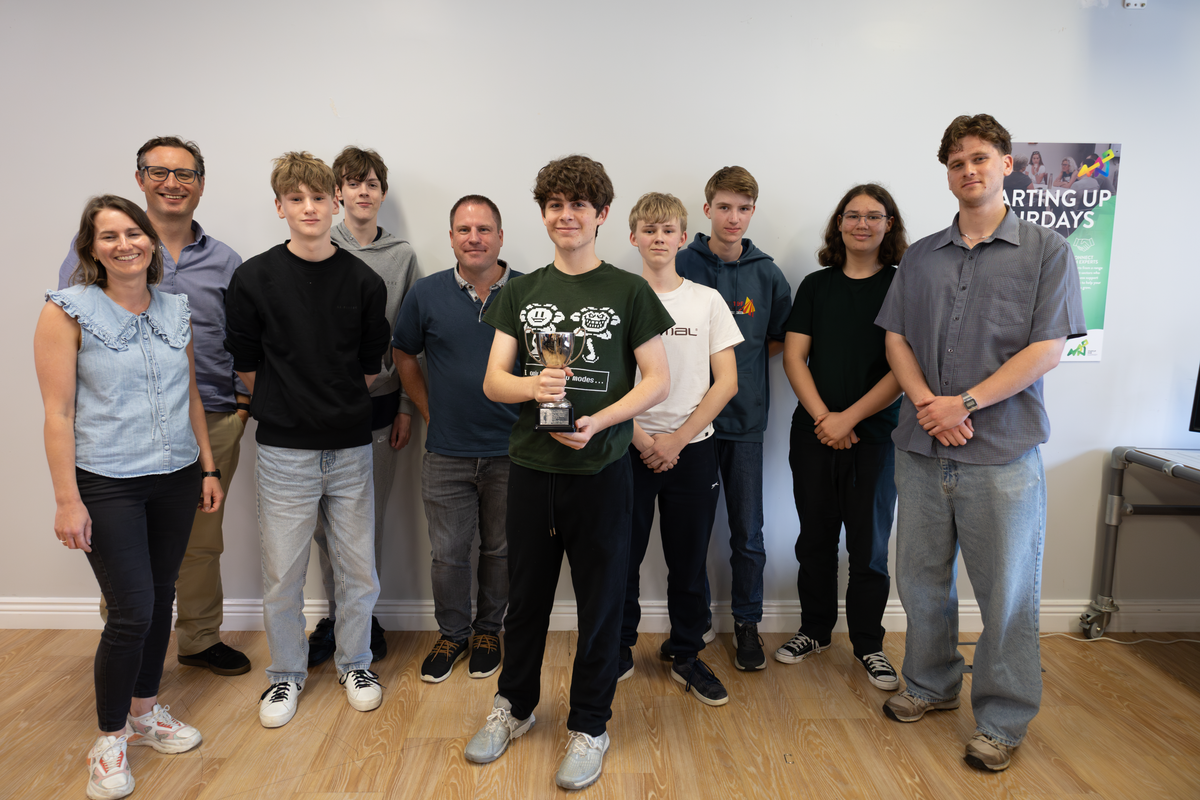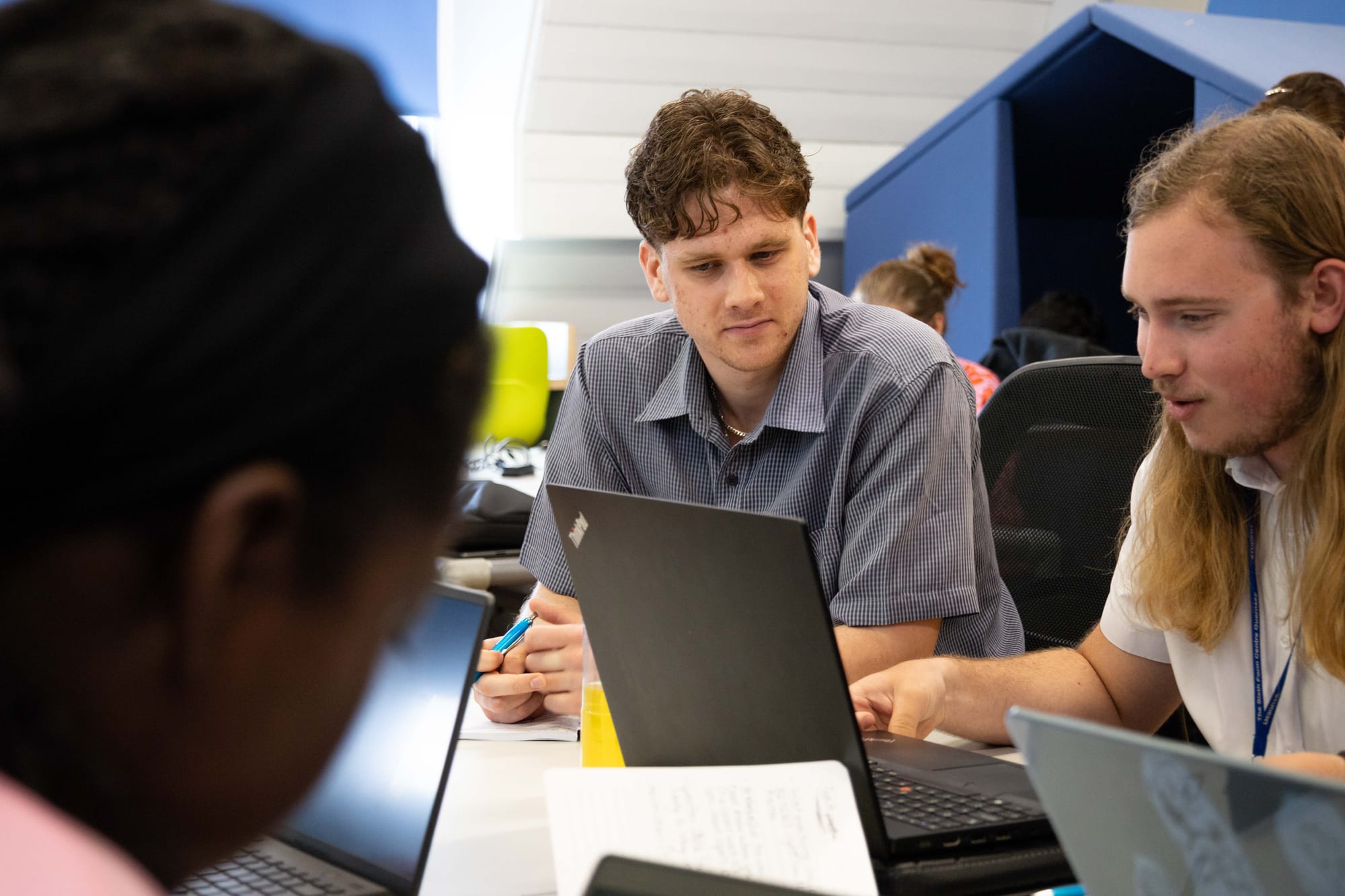Students tackle energy efficiency with AI at 2025 hackathon
The 2025 Digital Innovators Student AI Hackathon took place at the Digital Greenhouse, featuring 33 post-14 students from Blanchelande College, Elizabeth College, and The Sixth Form Centre.

- The 2025 Digital Innovators Student AI Hackathon was held at Digital Greenhouse
- 33 post-14 students from three Guernsey schools participated in the event.
- The challenge involved developing AI solutions to predict and reduce energy consumption.
- The winning team, OptiWatt, was recognised for their innovative approach to addressing "vampire devices”.
- The hackathon aimed to build students' problem-solving and technical skills through expert mentoring.
The 2025 Digital Innovators Student AI Hackathon took place at the Digital Greenhouse, featuring 33 post-14 students from Blanchelande College, Elizabeth College, and The Sixth Form Centre.
Sponsored by 1st Central and in partnership with University College London (UCL), the event challenged students to devise an AI model aimed at predicting and reducing energy consumption in both school buildings and homes.
During the fast-paced event, students worked in small teams over a four-hour period. They were tasked with researching, ideating, and developing AI-driven solutions, while also managing their time, delegating tasks, and preparing a presentation. Mentors supported the teams, including Paulius Volskis from UCL, along with experts from CI Information Security and Data Governance Forums and Digital Greenhouse.

At the end of the day, each team presented their innovative proposals to a panel of judges, which included Paulius Volskis, Paul Torode from 1st Central, and Rollo de Sausmarez from UN1TY. The judges were impressed by the quality and creativity displayed by all participants.
Judge Paulius Volskis said: “It was a real privilege to mentor such a driven and imaginative group of young participants. Their enthusiasm for problem-solving and their curiosity about technology was genuinely inspiring. Events like this not only build technical skills, but also spark confidence — and that’s what makes them so powerful.”
The winning team, OptiWatt from Elizabeth College, comprised Year 10 students Hamish Buchanan, Tibere Le Conte, Benjamin Le Page, Seth Le Tissier, Sebastian Steer, and Elliott Tyrrell. They impressed the judges with an end-to-end solution that effectively addressed the issue of "vampire devices," which are electronics that consume power in standby mode.
An honourable mention was awarded to The Binary Bros from Elizabeth College, who presented a well-crafted and insightful prototype, demonstrating a unique sleep-tracking concept despite their smaller team size.
Paul Torode, a judge and representative from 1st Central, said: “It was great to see the high quality of presentations and the impressive level of thought that had gone into each idea. The students showed real potential in applying AI creatively and practically to tackle real-world energy challenges. Their innovative thinking around reducing energy use in schools and homes was inspiring.”
Dave Costen, Director of Digital Learning at Elizabeth College, added, “Participating in the Digital Greenhouse AI Hackathon gave my students the opportunity to tackle a truly challenging, real-world problem, dig deep into their own creative solutions, and receive invaluable feedback from industry experts. The experience not only sharpened their problem-solving and computational-thinking skills but also helped many of them clarify and solidify their future academic and career aspirations.”
This hackathon is one of several initiatives under the Digital Innovators Programme, which seeks to equip students with skills in technology, problem-solving, and collaboration.

Comments ()